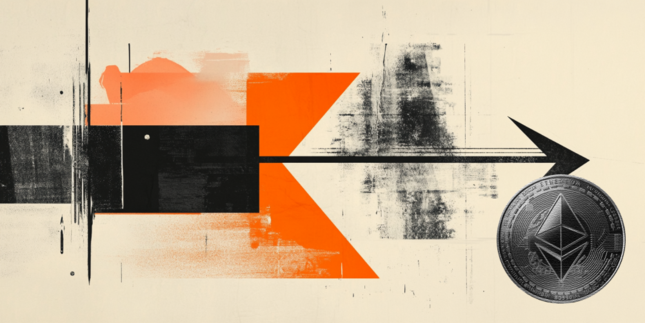By signing sound money legislation today, Arkansas Gov. Asa Hutchinson has officially ended sales taxation on gold, silver, platinum, and palladium bullion and coins– thereby setting an example for legislators in New Jersey, Maine, Ohio, and Tennessee, who are still considering similar measures in their own states this year.
Arkansas’s Senate Bill 336, originally introduced by Sen. Mark Johnson and Rep. Delia Haak, enjoyed tremendous popularity, passing through the state Senate 30-1 before passing out of the state House unanimously by a vote of 93-0.
Backed by the Sound Money Defense League, Money Metals Exchange, and grassroots activists and coin dealers in Arkansas, Senate Bill 336 will allow Arkansas investors, savers, and small businesses to acquire precious metals without being slapped with sales and use taxes.
The Arkansas sales tax exemption takes effect on July 1, 2021.
Meanwhile, similar bills are still pending in Ohio, Maine, Tennessee, and New Jersey as the national backlash against taxing constitutional money continues.
Including Arkansas, 40 U.S. states now fully or partially exempt gold and silver from the sales taxes. That leaves 10 states and the District of Columbia as the primary jurisdictions that still harshly penalize citizens seeking to protect their savings against the serial devaluation of the Federal Reserve Note.
States have been removing sales taxes from monetary metals for the following reasons:
- Taxing precious metals is unfair to certain savers and investors. Gold and silver are held as forms of savings and investment. States do not tax the purchase of stocks, bonds, ETFs, currencies, and other financial instruments, so it makes no sense to tax monetary metals.
- Levying sales taxes on precious metals is illogical because gold and silver are inherently held for resale. Sales taxes are typically levied on final consumer goods. Precious metals are inherently held for resale, not “consumption,” making the application of sales taxes on precious metals illogical and especially inappropriate.
-
Taxing gold and silver harms in-state businesses. It’s a competitive marketplace, so buyers in states with precious-metals sales taxes often take their business to neighboring states that have eliminated or reduced sales tax on precious metals. Investors can easily avoid paying $136.50 in sales taxes, for example, on a $1,950 purchase of a one-ounce gold bar. Therefore, levying sales tax on precious metals harms in-state businesses, who will lose business to out-of-state precious metals dealers. Coin conventions also tend to avoid the sales tax states.
-
Taxing precious metals is harmful to citizens attempting to protect their assets. Purchasers of precious metals aren’t fat-cat investors. Most who buy precious metals do so in small increments as a way of saving money. Precious metals investors are purchasing precious metals as a way to preserve their wealth against the damages of inflation. Inflation harms the poorest among us—including pensioners, Arkansans on fixed incomes, wage-earners, savers, and more.
The Sound Money Defense League does not offer legal, financial, or tax advice, and you should always consult with your own advisors.
Recommended Content
Editors’ Picks

EUR/USD bounces off lows, retests 1.1370
Following an early drop to the vicinity of 1.1310, EUR/USD now manages to regain pace and retargets the 1.1370-1.1380 band on the back of a tepid knee-jerk in the US Dollar, always amid growing optimism over a potential de-escalation in the US-China trade war.

GBP/USD trades slightly on the defensive in the low-1.3300s
GBP/USD remains under a mild selling pressure just above 1.3300 on Friday, despite firmer-than-expected UK Retail Sales. The pair is weighed down by a renewed buying interest in the Greenback, bolstered by fresh headlines suggesting a softening in the rhetoric surrounding the US-China trade conflict.

Gold remains offered below $3,300
Gold reversed Thursday’s rebound and slipped toward the $3,260 area per troy ounce at the end of the week in response to further improvement in the market sentiment, which was in turn underpinned by hopes of positive developments around the US-China trade crisis.

Ethereum: Accumulation addresses grab 1.11 million ETH as bullish momentum rises
Ethereum saw a 1% decline on Friday as sellers dominated exchange activity in the past 24 hours. Despite the recent selling, increased inflows into accumulation addresses and declining net taker volume show a gradual return of bullish momentum.

Week ahead: US GDP, inflation and jobs in focus amid tariff mess – BoJ meets
Barrage of US data to shed light on US economy as tariff war heats up. GDP, PCE inflation and nonfarm payrolls reports to headline the week. Bank of Japan to hold rates but may downgrade growth outlook. Eurozone and Australian CPI also on the agenda, Canadians go to the polls.

The Best brokers to trade EUR/USD
SPONSORED Discover the top brokers for trading EUR/USD in 2025. Our list features brokers with competitive spreads, fast execution, and powerful platforms. Whether you're a beginner or an expert, find the right partner to navigate the dynamic Forex market.